UN Women hosts the Women, Peace and Security strategic dialogue with women leaders to consolidate the women peace in Mozambique
Date:
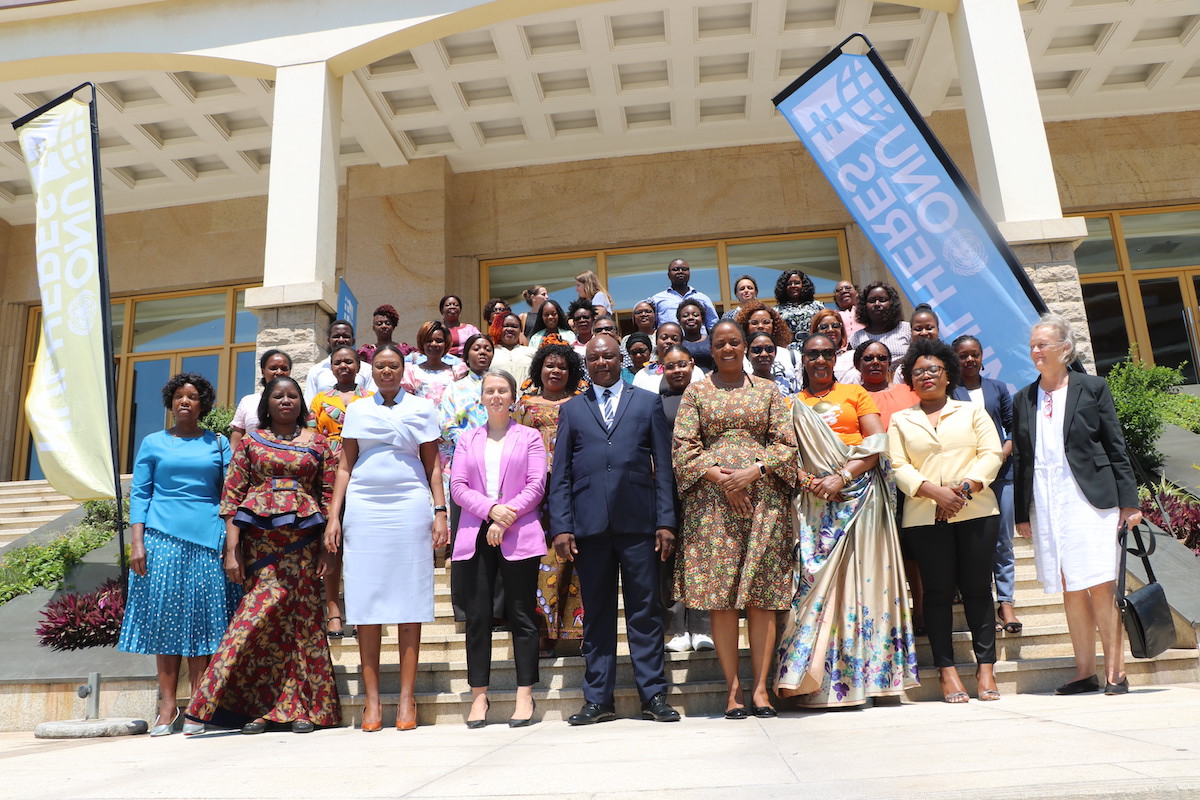
Around sixty influential women leaders gathered for the Women Peace and Security Strategic Dialogue on the 23rd of November 2023, in Maputo, Mozambique, organized by UN Women as part of the implementation of the project “Promoting the participation and leadership of women and girls in peace, security and recovery processes in Mozambique", funded by the Royal Norwegian Embassy in Mozambique.
The Strategic Dialogue was attended by leaders ranging from the UN Resident Coordinator of Mozambique, the Country Representative of UN Women Mozambique, Women Ambassadors from the SADC region, Parliamentarians, Judges, Commissioners, Religious Leaders, Journalists, Young women, Managers, Representative of Mozambican Civil Society and Women Organizations including representatives from Women Networks working on Women Peace and Security from Cape Verde and Angola.
The objectives of the strategic dialogue were to bring together influential women to deliberate on the priorities of Women, Peace and Security agenda in Mozambique, fostering the exchange of ideas, sharing insights, and collaboratively shaping strategies to strengthen the Women, Peace, and Security movement in Mozambique.
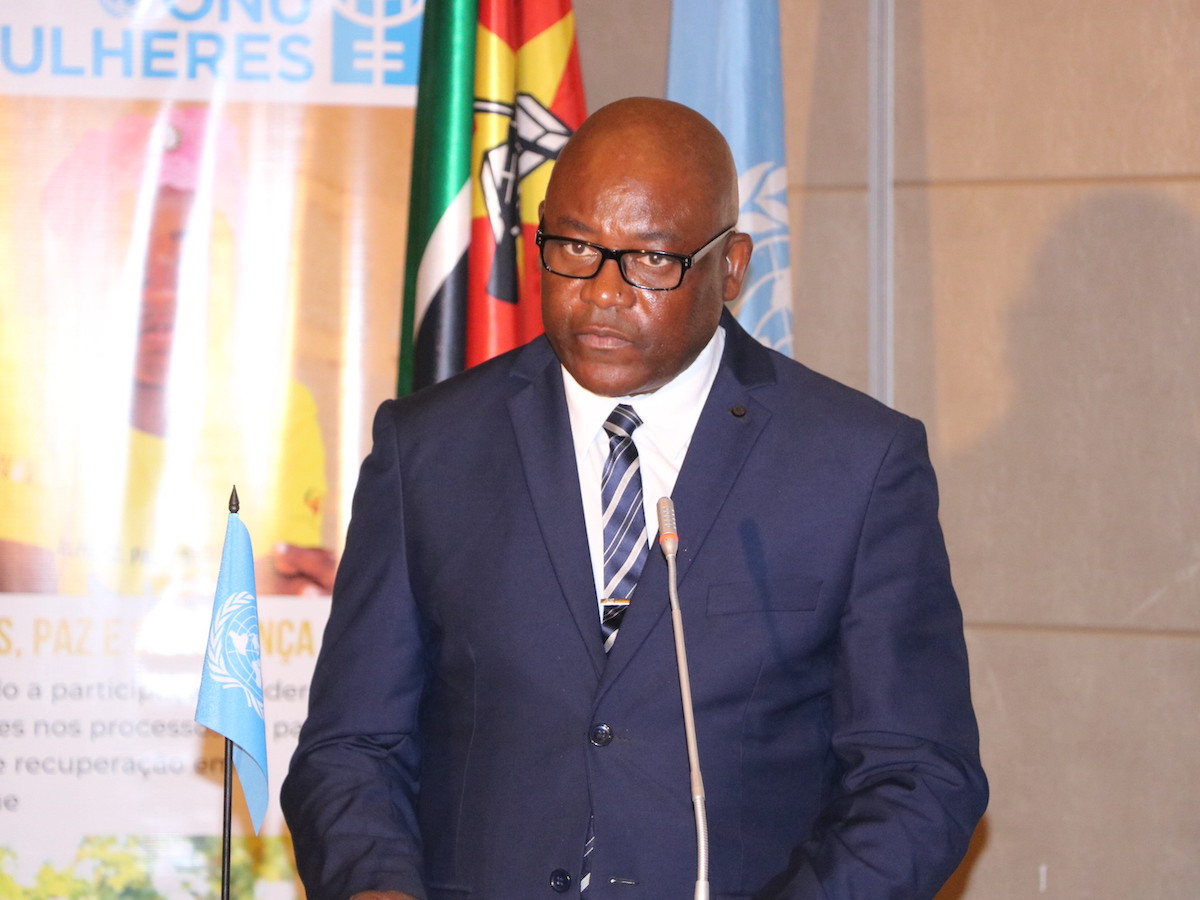
The Permanent Secretary of the Ministry of Gender, Children and Social Action, Dr. Paulo Beirão officially opened the Strategic Dialogue on behalf of the Minister of Gender, Children and Social Action and in his speech he asserted that "we must reinforce actions to promote dialogue and peace in families and communities, and provide multifaceted assistance to women, girls and other vulnerable and displaced groups, prioritizing those that result in the recovery of self-esteem, contributing to their effective reintegration and independent living".
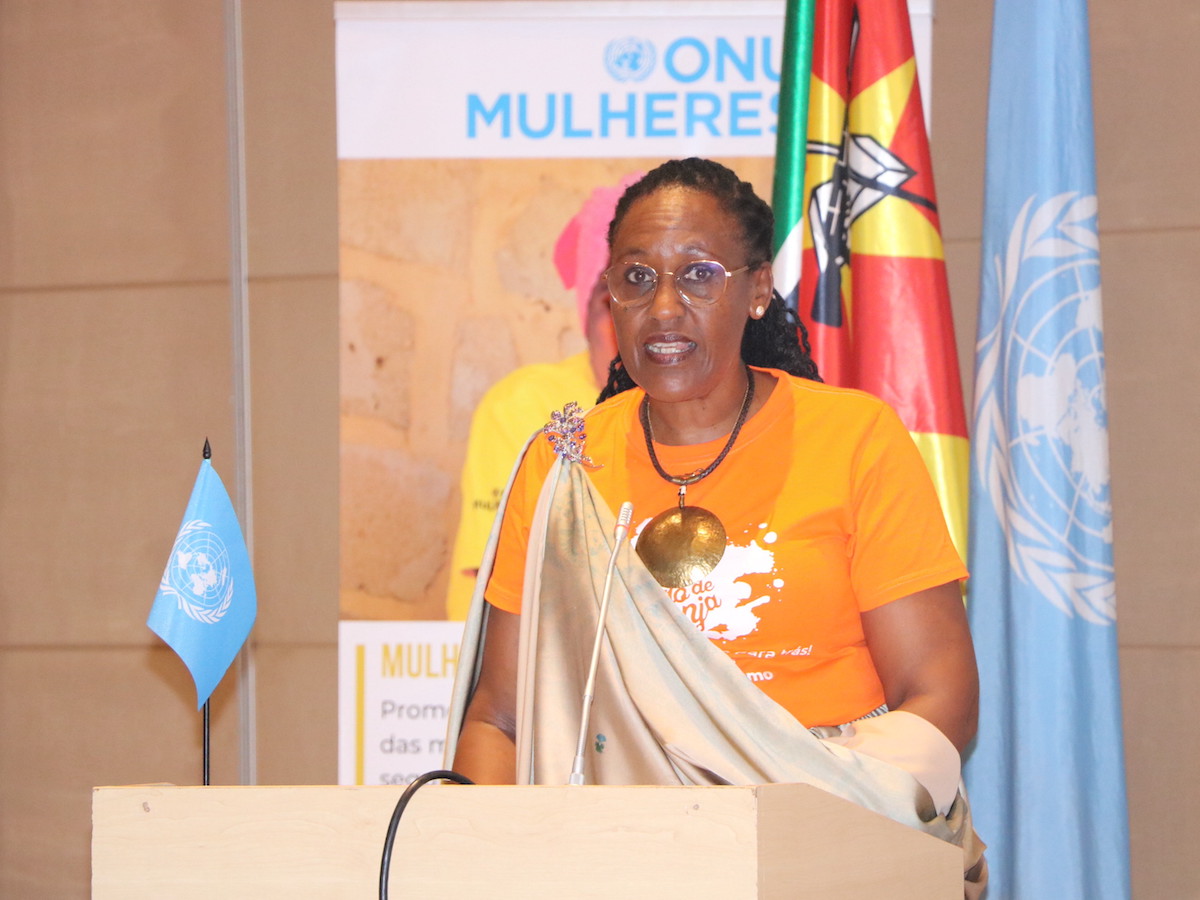
For UN Women Mozambique Representative, Dr. Marie Laetitia Kayisire, she highlighted that the WPS Strategic Dialogue was an opportunity to reflect on how the Women Peace and Security Agenda can be articulated, to influence policy and decision-making, as well as to advocate for the strengthening of women's leadership in the processes of peacebuilding, social cohesion and reconciliation, from the grassroots to the national level.
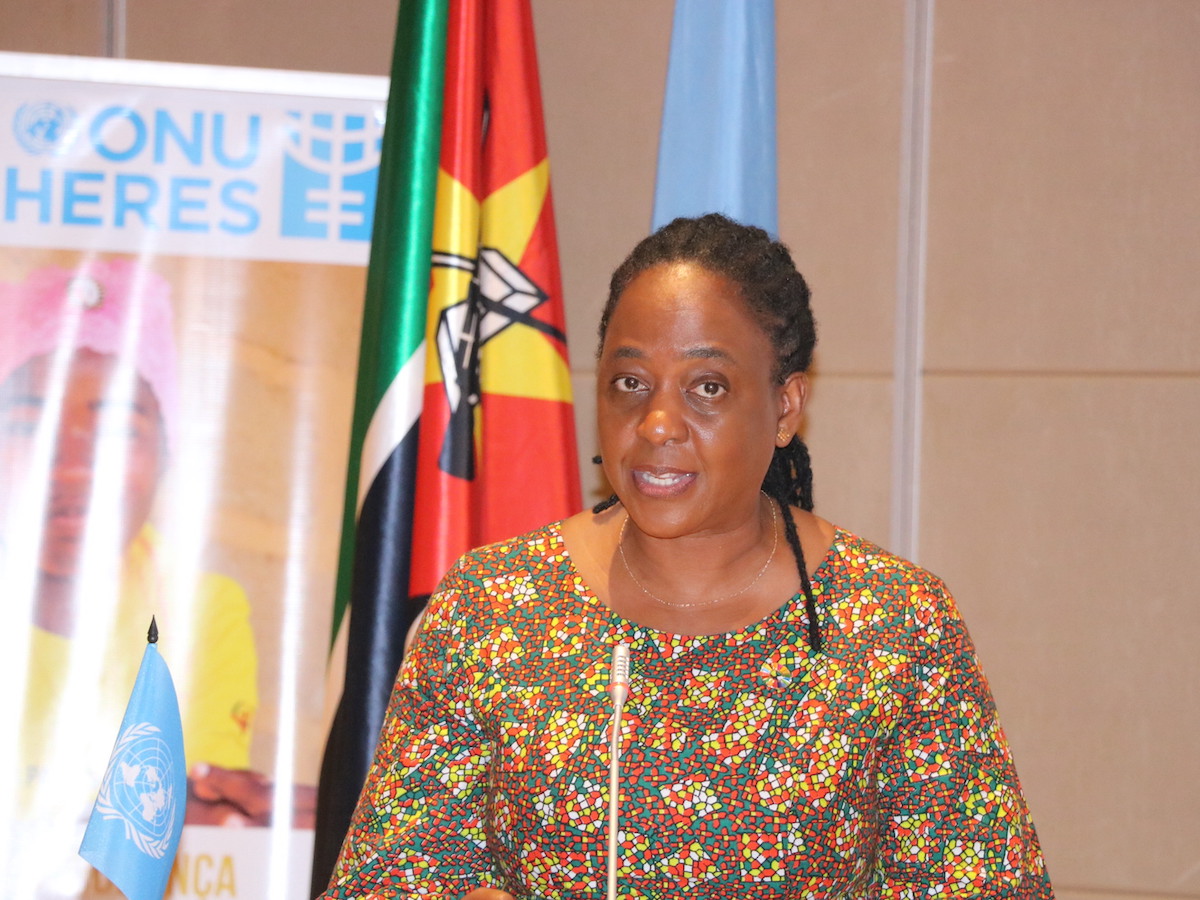
For the United Nations Resident Coordinator in Mozambique, Dr. Catherine Sozi the occasion also served as an opportunity for the United Nations to reaffirm its commitment on women, peace and security. "As the United Nations, we are committed to continuing to work hand in hand with national institutions, international partners and civil society to drive progress on women, peace and security, supporting women, highlighting their vital work, and amplifying their voices. There is no time to waste. The Women, Peace and Security agenda is one of our best hopes for a more peaceful future and a livable planet". ~ Dr. Sozi
During the event, participants received inputs on how to strengthen and sustain the Women Peace and Security Movement in Mozambique from a UN Women International Gender and Peacebuilding Consultant, Netsai Mushonga.
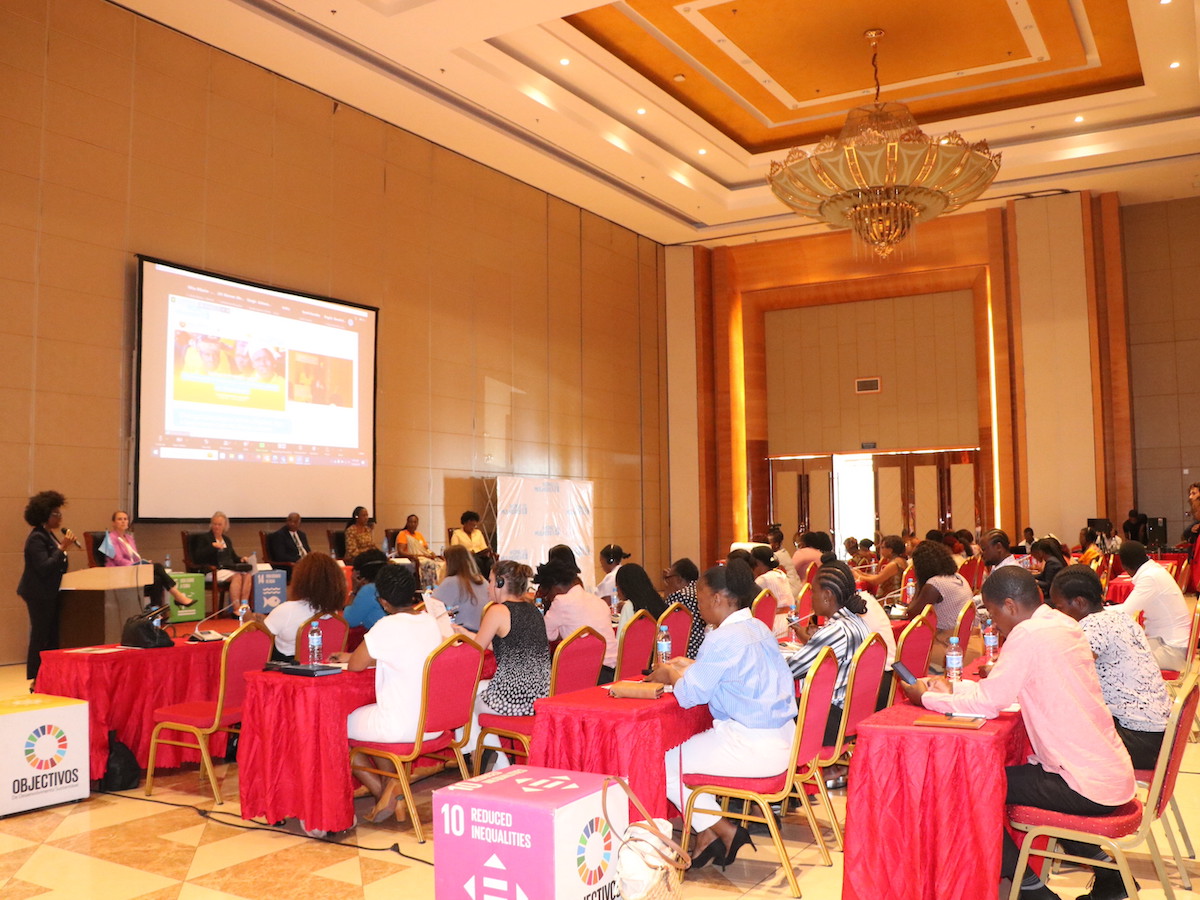
The Dialogue resulted in the identification of key priorities to advance the Women Peace and Security Agenda in Mozambique. Those are:
- The need for Mozambican women to have voice and visibility in issues of Women Peace and Security, especially women at the grassroots level.
- Showing solidarity with women in Cabo Delgado where there is the threat of violent conflict is a priority. The same solidarity should be shown to women and communities affected by conflict in Cabo Delgado and surrounding provinces.
- There is need to advocate for the leadership and participation of women in peacebuilding and reconstruction processes in Cabo Delgado.
There is inadequate monitoring of the implementation of the National Action Plan (NAP) on Women Peace and Security. The WPS movement should explore how civil society can carry out this effectively.
- There is need to build capacity in conflict resolution and peacebuilding among women and their communities in Mozambique. Such capacity building should include women and girls in schools and tertiary institutions.
- The Women Peace and Security work should recognize informal/traditionall structures that resolve conflict, build cohesion and promote human rights at the community level e.g., the chief’s court and other traditional structures and systems.
- Early unions and gender-based violence, especially sexual violence are major threats to Women, Peace and Security, and they need urgent attention.
- Women made a commitment to participate in the evaluation of the NAP on Women Peace and Security and on the development of the second-generation NAP to influence national policies on WPS.
About the Project
The technical and financial support to strengthen the capacity of women organizations and networks is part of UN Women's commitments to promote participation and leadership of women in peace, security and recovery processes, towards the implementation of Women, Peace and Security global and national commitments in collaboration with the Ministry of Gender, Children and Social Action and financial support of the Royal Norwegian Embassy in Maputo.
To promote the participation and leadership of women in peace, security and recovery processes in Mozambique is an UN Women project funded by the Royal Norwegian Embassy in Maputo that aims to ensure that women and girls contribute to and have greater influence in building sustainable peace and resilience and benefit equally from the prevention of the conflict, and disasters in, in 4 provinces namely Manica, Sofala, Cabo Delgado and Nampula, from central and northern regions of Mozambique while working on building enabling environment at national level.
The programme will promote capacity building to 10,500 women and girls affected by conflict and 2,500 representatives from women organizations working on conflict prevention, response and recovery; it will conduct civic campaign to increase awareness of the vital role of women’s participation in building and sustaining socio and cultural positive norms and values for social cohesion and peacebuilding and it will support social norms transformation, and promotion of the socioeconomic recovery of women and young women affected by conflict.